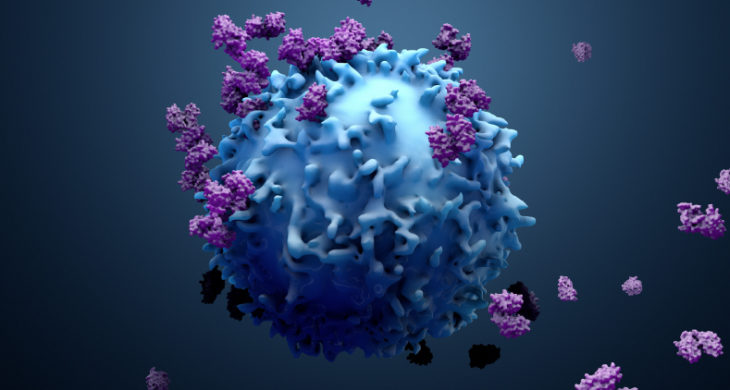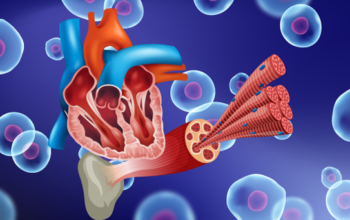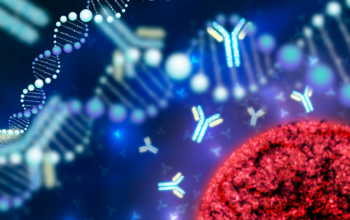
Date: 10th September 2021
Cytokines are potent modulators of the immune system and systemic administration of recombinant cytokines are a clinically validated therapeutic strategy for the treatment of cancer. However, whilst they are an important treatment modality for a handful of cancer types, systemic immunocytokine-based therapies have faced several limitations in the clinic, in the main due to the need for frequent administration, which can lead to severe dose-limiting toxicities. Now, researchers have demonstrated that intratumoural administration of saline-formulated messenger (m)RNA encoding four cytokines promoted antitumour immunity and tumour eradication across multiple preclinical cancer models.
Cytokines are major regulators of innate and adaptive immunity that enable cells of the immune system to communicate over short distances. Systemic administration of recombinant cytokines, such as interleukin-2 (IL-2) and interferon-α (IFN-α), are approved for adjuvant treatment for cancer patients with for example high-risk melanoma and renal cell carcinoma. However, advances in cytokine therapy have been limited, in part as systemic delivery results in short half-lives for the drugs which ultimately leads to severe dose-limiting toxicities. Local, combinatorial cytokine therapy has been evaluated using viral and nonviral gene therapy vectors to target drug delivery but these approaches harbour potential risks such as unwanted genomic rearrangements and antivector immunity. One alternative being investigated is mRNA therapy, which is transient and can be harnessed to induce local translation of cytokines without or without specialised formulation.
Now, researchers at BioNTech, Germany, and Sanofi, US, led by Ugur Sahin have used saline-formulated mRNA encoding mixtures of proinflammatory cytokine that favourably altered tumour microenvironment and promoted antitumour immunity, antitumour activity extended beyond the treated lesions and inhibited growth of distant and disseminated tumours.
To start, the team injected modified mRNAs intratumourally in mice. These mRNAs had a substitution of uridine with N1-methylpseudouridine triphosphate (m1ΨTP) which reduced the innate immune stimulatory effect of RNA. This substitution resulted in an increase in a reporter luminescence-encoded mRNA in the tumour when compared to the controls, and both tumour and infiltrating immune cells were able to take up the translate the injected mRNAs.
Next, the team wanted to explore the therapeutic potential of expressing immune-modulatory proteins within the tumour. Using an iterative in vivo screening process for antitumor activity, they identified a mixture of mRNAs encoding four cytokines (IL-12sc, GM-CSF, IFN-α, and IL-15 sushi) that exhibited substantial antitumor activity. Injection of this pool of mRNAs led to efficient tumour growth control, and in most cases led to complete regression in two tumour-bearing models – in 8/10 animals bearing skin melanoma and 9/10 carrying colorectal tumours. Mice were resistant to rechallenge, implying the development of immunologic memory, which further experiments showed was dependant on the presence of CD4+ T cells, CD8+ T cells, and natural killer (NK) cells.
However, the team wanted to understand better the changes, if any, to the tumour microenvironment. Here they showed that cytokine mRNA treatment was associated with increased infiltration of CD4+ and CD8+ T cells, and the tumours exhibited higher expression of granzyme B as well as tumour necrosis factor–α (TNF-α) and IFN-γ, indicating polyfunctionality. An increase in other proinflammatory pathways were also detected along with pathways associated with antigen presentation and induction of T helper type 1 (TH1) immune response. Together, these data suggested that cytokine mRNA treatment altered the tumour microenvironment and promoted infiltration of activated T cells.
Metastasis causes more than 90% of cancer-related deaths, so the team wanted to assess whether cytokine therapy could confer antitumor activity against noninjected tumours. They developed a multilesion melanoma tumour model, and showed that intratumoural administration into subcutaneous tumours could also suppress the growth of lung pseudometastatic foci, and immune cells infiltration was seen at 3 days of treatment in the lungs. A similar result was seen in a dual tumour model where both flanks of mice bore tumours, administration into a single tumour site showed a dose-dependent therapeutic efficacy in both tumours, resulting in improved overall survival.
Lastly, the team showed antitumor activity could be enhanced by combining cytokine mRNA with immune checkpoint blockade. Furthermore, in preparation for translation from preclinical trials to clinical trials the researchers demonstrated that human versions of the mRNA constructs translated into fully functional cytokines which stimulated immune cells in samples from patients with advance-stage cancer.
Conclusions and future applications
The team here have shown that intratumoural delivery of cytokine-encoding mRNAs in saline solution mediates significant therapeutic effects, resulting in tumour regression or eradication both at localised and distant tumour sites.
Many mRNA therapy strategies rely on lipid-based systems to enhance delivery and translation of mRNAs within the tumour, this may however unfavourably alter biodistribution. The advantage here is that with a carrier-free approach it minimises off-target effects and potential adverse reaction associated with carrier material. Although, a converse concern could be lower on-target translation of the mRNA, this does not seem to be the case here.
From a wider perspective mRNA therapy is showing promise in other areas of disease aside from cancer. A new mRNA ‘universal’ therapeutic strategy, this time using lipid nanoparticles, has been shown to ameliorate cystic fibrosis and can be administered intranasally. Other RNA therapy can reverse childhood blindness in patients for up to 15 months.
With respect to cytokines this is currently a very dynamic field, with designer cytokines accelerating biomedical applications. From designer cytokine hyper-interleukin-6 reversing paralysis by inducing nerve cell regeneration, to new immunocytokine therapy showing promise for glioblastoma.
With this in mind it is likely that this multi-cytokine mRNA approach could translate into therapies for other types of disease, and certainly other cancers. On the back of the success here in mice, BioNTech sponsored by Sanofi have moved quickly into clinical trials, with a Phase I/II trial now underway. They are currently recruiting an estimated 261 participants. The drug, called SAR441000, has been administered in 17 patients, and preliminary data shows no serious side-effects, and in some CD8+ T cell infiltration in tumour biopsies has been observed. Following, the great achievements of their mRNA vaccine against COVID-19, BioNTech hope this success story will now be replicated for the fight against cancer.
Hotz, C., Wagenaar, T.R., Gieseke, F., Bangari, D.S., Callahan, M., Cao, H., Diekmann, J., Diken, M., Grunwitz, C., Hebert, A., et al. (2021). Local delivery of mRNA-encoding cytokines promotes antitumor immunity and tumor eradication across multiple preclinical tumor models. Science Translational Medicine 13, eabc7804.
https://doi.org/10.1126/scitranslmed.abc7804

